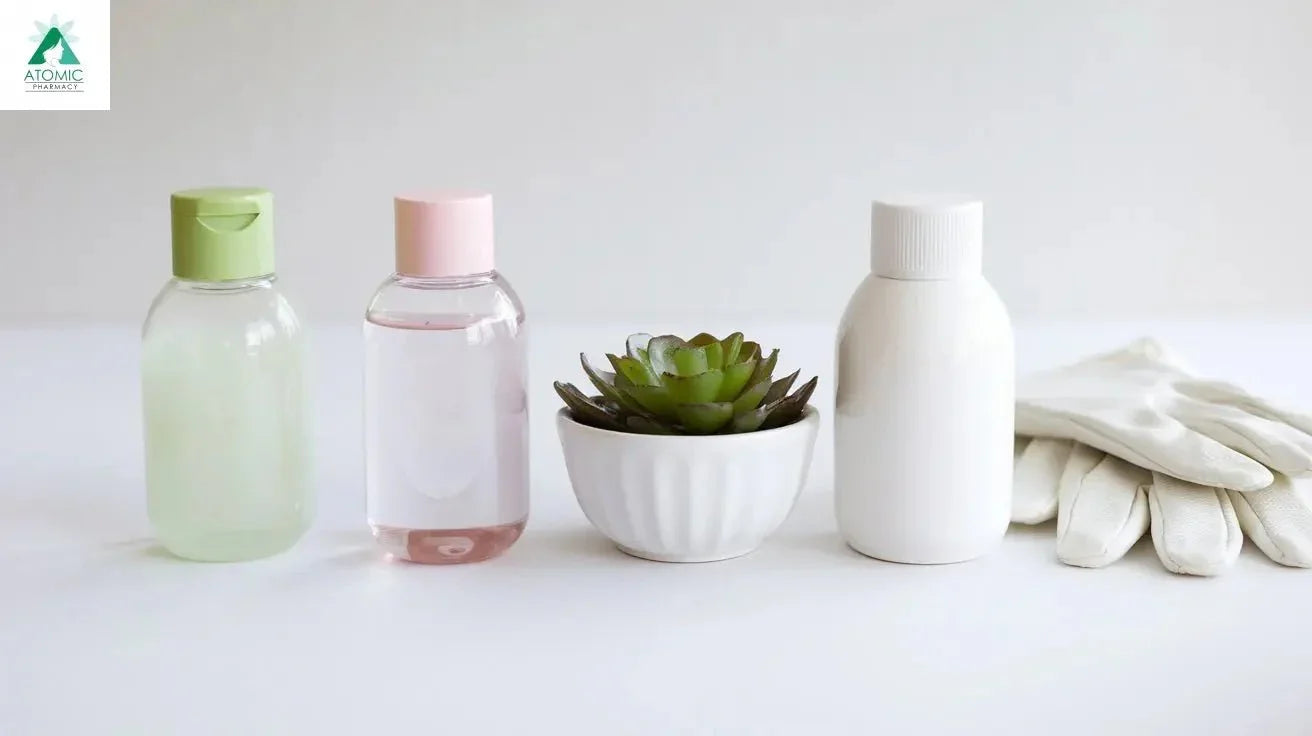Sensitive skin tends to react more easily to ingredients, climate changes, and stressors. A properly chosen regimen with calming and nourishing ingredients can keep reactions at bay, providing comfort and protection. With the best skincare ingredients for sensitive skin, you can craft a routine that truly supports skin health without irritation.
Understanding Sensitive Skin
Sensitive skin reacts quickly to environmental changes, skincare ingredients, and even lifestyle factors like stress or diet. People with sensitive skin often experience redness, irritation, dryness, or discomfort after using certain products or during climate changes. This is because the skin barrier tends to be more fragile, hence an easy passage for the irritants.
Dermatologists understand that a healthful cutaneous barrier is the key to managing sensitivity and flare-ups. These ingredients can be used as methods to provide nourishment, hydration, and strengthening properties to this outer layer of the skin. In creating the new regime, they will strive to build a calming, protective routine that works without piling on harsh or active stuff.
Best Skincare Ingredients for Sensitive Skin
1. Aloe Vera
Aloe Vera has been studied extensively for its skin-soothing properties, thanks to its high water content and natural polysaccharides that help restore the skin barrier. The science shows that aloe vera is an anti-inflammatory, promotes wound healing, and some amount of UV protection can be applied.
Dermatologists often recommend aloe due to its hydrating, anti-inflammatory effects. They are great at calming the redness and irritation on sensitive skin. Aloe vera is rich in antioxidants, including vitamins A, C, and E, which further protect the skin from environmental stressors.
2. Niacinamide (Vitamin B3)
One of the not-so-potent ingredients that gives a certain amount of inflammation with its properties and makes one's skin more elastic, which also suits sensitive skin, is niacinamide. Scientists show how topical applications of niacinamide enhance the strength of the barrier function in the skin, which is significantly critical for sensitive skin and causes irritation easily.
Such compounds decrease redness and further smooth out the color of the skin without giving any reaction. A variety of studies have demonstrated the action of niacinamide that has resulted in an improvement in water content, hyperpigmentation, and even a low level of anti-aging effects.
3. Oat Extract and Colloidal Oatmeal
Colloidal oatmeal is scientifically recognized for its ability to reduce redness, itching, and inflammation, thanks to compounds like avenanthramides. These antioxidants help soothe irritated skin and are commonly recommended for eczema and other inflammatory skin conditions.
Oat extract forms a protective barrier, locking in moisture and preventing further irritation. Clinical trials have demonstrated oatmeal's effectiveness in reducing symptoms associated with sensitive skin, making it a top choice for moisturizers and calming cleansers.
4. Hyaluronic Acid
Hyaluronic acid is a gentle hydrating agent naturally found in the body, known for binding water molecules and enhancing moisture retention in the skin. It is highly compatible with sensitive skin, as it doesn’t clog pores or cause irritation.
Research highlights that hyaluronic acid can hold up to 1,000 times its weight in water, making it ideal for hydrating dry, sensitive skin without feeling heavy. Dermatologists recommend applying hyaluronic acid before moisturizers to boost hydration and help improve the skin’s overall resilience.
5. Ceramides
Ceramides are lipid molecules that play a significant role in maintaining the healthy skin barrier. In sensitive skin, ceramides are usually in low amounts, which leads to dryness, irritation, and sensitivity to environmental stressors. Topical ceramides have been shown to improve hydration of the skin and alleviate symptoms of sensitivity, especially in cases of eczema or dermatitis.
For example, ceramide-enriched moisturizers strengthen the skin barrier and allow a better lock of moisture, besides decreasing the reaction to irritating substances significantly. More and more dermatologists recommend ceramides for sensitive skin, as they enhance resistance and slowly decrease irritation.
Ingredient Pairing for Maximum Benefit
Certain ingredients work together to enhance each other’s benefits, making them ideal pairings for sensitive skin. For instance, ceramides combined with hyaluronic acid can effectively hydrate and protect barrier function.
Hyaluronic acid gives moisture, and ceramides lock that in, so the skin will have the resilience to react less to irritants. And similarly, oat extract coupled with niacinamide will help soothe redness and irritation to smooth the skin.
Conclusion
A simple and effective routine for sensitive skin can only be made with soothing, strengthening, and protective ingredients with less irritating potential. By understanding what your skin needs and introducing gentle, proven ingredients gradually, you can create a routine that supports a healthier, more resilient skin barrier.
Remember that with sensitive skin, less is often more; simplicity and consistency are key to achieving long-term results. And if you need expert guidance, consult a dermatologist or trusted source like Atomic Pharmacy, where you can find dermatologist-recommended products specifically for sensitive skin.

